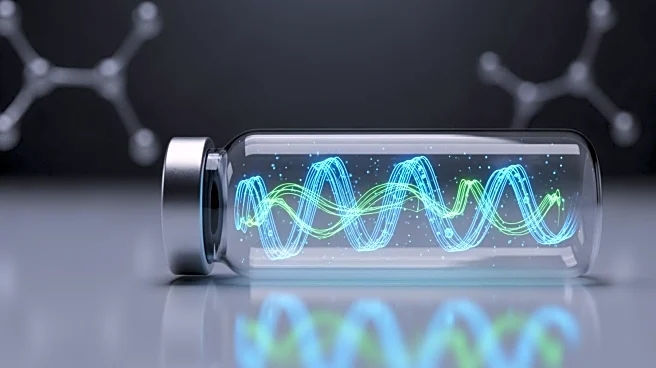Rapid Read • 8 min read
Scientists at the Medical Research Council's Laboratory of Molecular Biology have successfully engineered a new strain of E. coli, named Syn57, which features a more efficient genetic code than any other known lifeform. This bioengineered bacteria uses seven fewer codons than the standard 64 found in all life on Earth. Codons are sequences in DNA and RNA that instruct amino acids, the building blocks of life. Historically, life has utilized 64 codons, but researchers have now demonstrated that life can function with fewer, reducing redundancy in the genetic code. This achievement follows previous efforts by Cambridge University researchers who reduced the codons to 61 in 2019, marking a significant step in synthetic biology.
AD
The creation of Syn57 represents a major advancement in synthetic biology, potentially leading to more efficient genetic engineering and biotechnological applications. By reducing genetic redundancy, scientists can explore new possibilities in genetic coding, which may lead to innovations in medicine, agriculture, and environmental science. This breakthrough could pave the way for developing organisms with tailored genetic codes for specific functions, enhancing the efficiency of biological processes. The ability to manipulate genetic codes with precision may also contribute to advancements in personalized medicine and the development of new treatments for diseases.
The success of Syn57 opens the door for further exploration into alternative genetic codes and their applications. Researchers may continue to test and refine these codes to understand their potential in various fields. The implications for biotechnology are vast, with potential developments in creating organisms that can perform specific tasks, such as breaking down pollutants or producing pharmaceuticals. As the field progresses, ethical considerations and regulatory frameworks will likely be discussed to ensure responsible use of synthetic biology.
The development of Syn57 raises ethical and philosophical questions about the nature of life and the extent to which humans should manipulate it. As synthetic biology advances, discussions around the moral implications of creating life forms with altered genetic codes will become increasingly important. The potential for unforeseen consequences in ecosystems and biodiversity must be considered, prompting debates on the balance between innovation and preservation.
AD
More Stories You Might Enjoy











